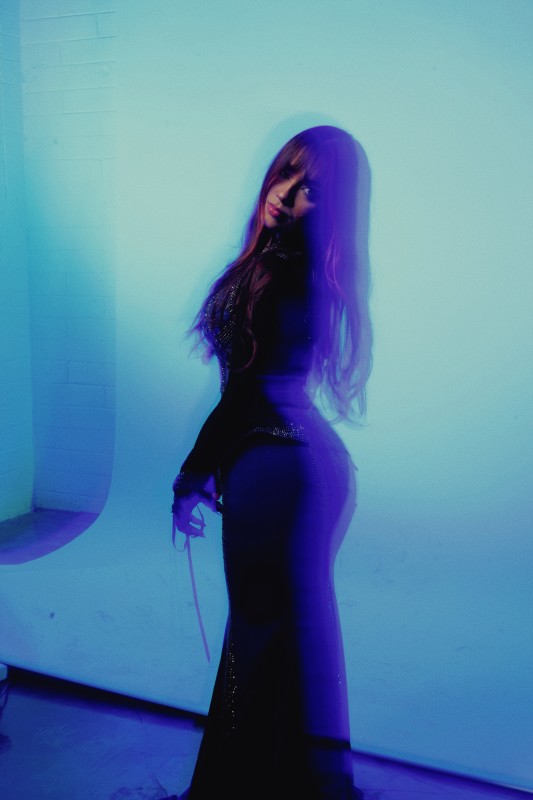By the time our calendars aligned, it had been over a month since I was scheduled to speak to Dummy. One time my internet blew out, another time their tour bus tire did – so when we’re finally able to sit down and chat properly, there’s a sense of relief between us.
Dummy’s latest release is a remix album, a dizzying reinterpretation of last year’s Free Energy, featuring remixes from some of the most exciting electronic and experimental bands working today. Three Quarter Skies – Simon Scott from Slowdive’s new project – kicks things off with an elongated, pick-through-the-rubble take on the dancey intro song, “Intro-UB”, and things run from there: from Wishy into GMO into Donkey Basketball and off into the shapeshifting sunset. In suitably Dummy fashion, they’ve titled this collection Bubbelibrium Dlc, and most tracks have an equally bubbly, delirious subtitle too (“Deep Ecstasy Mix”, “Float and Ride Mix”, etc.).
Our conversation was originally booked in to help promote that release. Instead, joining me from their flat in L.A., guitarist Joe Trainor and drummer Alex Ewell entertain a more casual conversation, but we do get into their new project, as well as how they stick to their band’s ethos in an industry that can sometimes run counter to it.
Dummy are and have always been a scrappy underdog sort of band, and even in success they remain steadfast in how their music is created, recorded, promoted, and released. Coming off of their recent European tour, they continue to enjoy being on the road as much as they do recording new music. “We played like this Gravedigger’s cottage in Szczecin,” Ewell says (officially it’s called Klub Storrady). Trainor even says that he came around to thinking pierogies are good given the venue staff were dishing them out endlessly. “The whole tour, the crowds were great, and at worst they were good, but Poland is definitely fun to play in,” he continues.
Even with the bigger tours and a growing, hard-fought fanbase, Trainor admits that the success has in a weird way made them dig their heels even more into their DIY ethos. “We’re constantly baffled by the way things work, each rung we go up in this industry,” he says. “In a way, we’ve stuck by it even if it might have been easier to let go of being involved in the minutiae.”
Dummy might have a booking agent and a manager now, but Trainor still acts as the de facto press manager, and all of their promotional art is made by bandmate Emma Maatman (who, along with her co-vocalist Nate O’Dell, couldn’t speak with me as they both have full-time nine-to-fives). “People often just let things get taken care of for them, and we find that really weird,” Ewell expresses. “Often an opener will get booked and the artist doesn’t even know them at all.” Dummy, then, will at the very least make themselves familiar with who they’re sharing a stage with, if not book the opener themselves – or, in the case of their recent European tour, research and suggest bands to their bookers.
“We just care about who we play with, and we want every band we play with to feel like they have to win the night,” Trainor explains. When I ask if their stubbornness has ever ruffled any feathers, Ewell jokes that “it’s more our feathers that get ruffled, the more behind-the-curtain gossip we are privy to the longer we do this.”

If you’re counting, yes, the band’s team is very small. O’Dell works on visualisers, Maatman works on graphics as well as directing the band’s music videos, Trainor and Ewell do the admin. Perhaps I’m too pessimistic, but it’s surprising to hear the pair say that it’s getting more sustainable the bigger they get. “Of course it’s exhausting. Emma has to come back from her job and sometimes immediately go into Dummy artwork without a real rest, or after a day of answering emails do I really have the energy to be creative?” Trainor says, “but the closer to our job the band becomes, the easier it gets, and we’re so focused on our whole output that the idea of relinquishing that control doesn’t really seem worth it.”
Ewell picks up from there: “The hardest thing is keeping it financially sustainable. We pretty much only breakeven after every tour to [be able to] record and tour again,” he says, “but if anything we’re more sustainable than ever as we continue to grow, and because we’ve built our audience slowly it feels more stable than any fame that might come from a single moment of virality.”
Suffice to say, Trainor and Ewell have a proverbial chip on their shoulder. But even if they’re comfortable labelling it as moral grandstanding, it just comes across as passion, which shines through more when the vicious cycle of social media and the internet comes up. “It used to be that the tunes and live show had to be killer, and obviously there are still acts that have achieved success through that – like, say, Mannequin Pussy or Turnstile – but it sort of feels like so much of how to succeed in independent music nowadays is taking from major label practices, instead of the other way around where major labels were reaching down to catch the next big thing,” Trainor says. Ewell suggests that the need for band’s to curate an online image only exacerbates this. “You used to have LimeWire or Myspace or WhatCD, and now all these tools are either non-existent or really just serve to get engagement, or for people to see ads,” he says.
Their new remix album, Bubbelibrium Dlc, proves to be a continuation of both their creative journey as well as their desire to foster a stronger community around them. “For Free Energy, really it just came down to touring,” Trainor says. “We got a little sick of the songs we’d performed. We were playing hour-long sets, which is longer than we were used to playing, and we just wanted to do something new.”
The pair had also learnt a lot about the technical side of recording through making Free Energy, and were also drawing from a lot more electronic influences than on their debut. Sticking to their DIY ethos, the band did a lot of their own production and engineering, but the idea to release a remix album mostly came from their similarly creative friends.
“We’d had friends who wanted to do a remix of our songs, and for a while it wasn’t super real, but when we started to take this reimagining seriously, we wanted to make sure we weren’t just doing this as a marketing stunt for the last record,” Trainor explains. “Remix albums were always cool and interesting when we were kids and we really wanted to see what our friends could do with the songs.”
Ewell adds: “We also just wanted to have an even more electronic vision for that last record, and it made sense to bring in our friends who make great electronic music, as well as being inspired by ‘90s remixes of rock bands giving their songs up for an electronic reimagining.” They both point to Andy Weatherall’s remix of “Soon” by My Bloody Valentine as an example of someone uncovering different aspects of an existing song. (And if you’re still counting, yes, there is a Dummy song called “Soonish”, which gets remixed by Indianapolis band Wishy for Bubbelibrium.)

It’s congruous to Dummy’s principles that they wanted to work with their friends and bolster a creative community around them. “The key was to collaborate, and as big fans of music we just wanted to support some people we think are underappreciated,” Ewell says, “and the only way we were going to do it is if we thought it was something worth listening to, even if it meant we had to give up a little control,” he jokes. So they sent clips, recordings, and stems to their wide cast of collaborators across the country, asking them to create something reminiscent of Free Energy while also completely fresh.
“You never know what might happen when you put things in other people’s hands, but it came out even better than we expected, and there’s parts that we listen back to now and think, ‘Damn we should have done that,’” Trainor says.
After over an hour of conversation, with too many digressions to list, I suddenly felt that earlier relief morph into frustration, simply because I couldn’t speak to the pair for the rest of the day. We’d covered so much ground and could keep covering ground indefinitely, given how many unique perspectives Dummy has. Yet, as we’ve established, Trainor and Ewell have many, many other obligations to tend to, Dummy related or otherwise.
Before saying our goodbyes, I made sure to ask how that tyre burst on their EU tour. “We were just driving a bit too fast because we were late packing up from our last show and speaking to the staff at the next venue,” Trainor recounts. An entirely believable story for anyone who has become just a little more familiar with how Dummy sees the world, and themselves.

 7 hours ago
4
7 hours ago
4


















 English (US) ·
English (US) ·